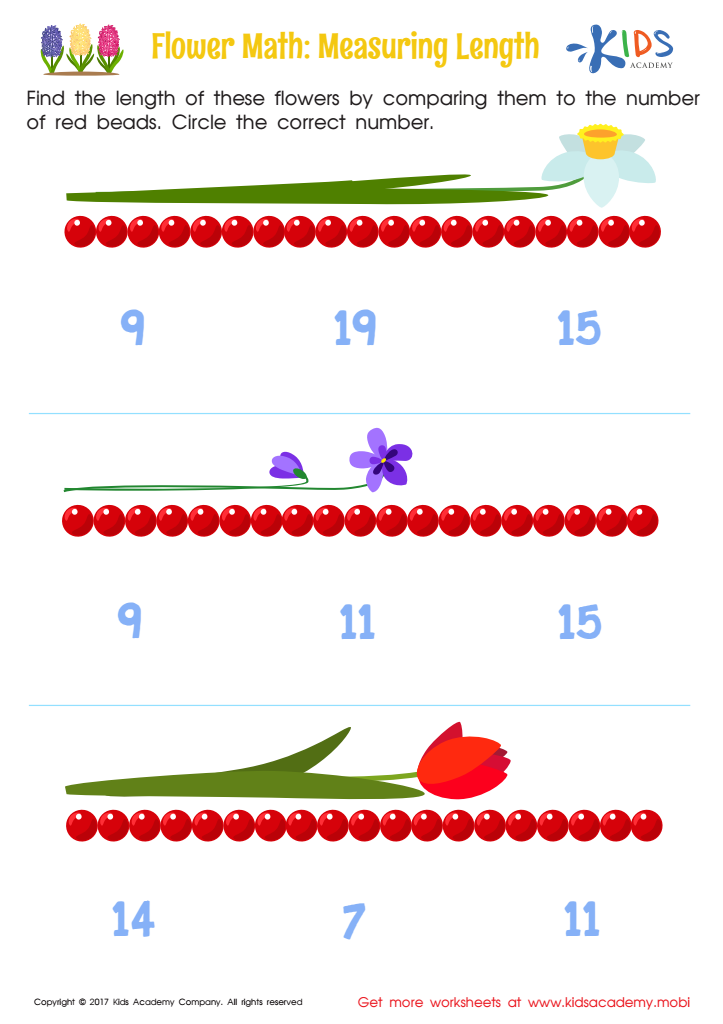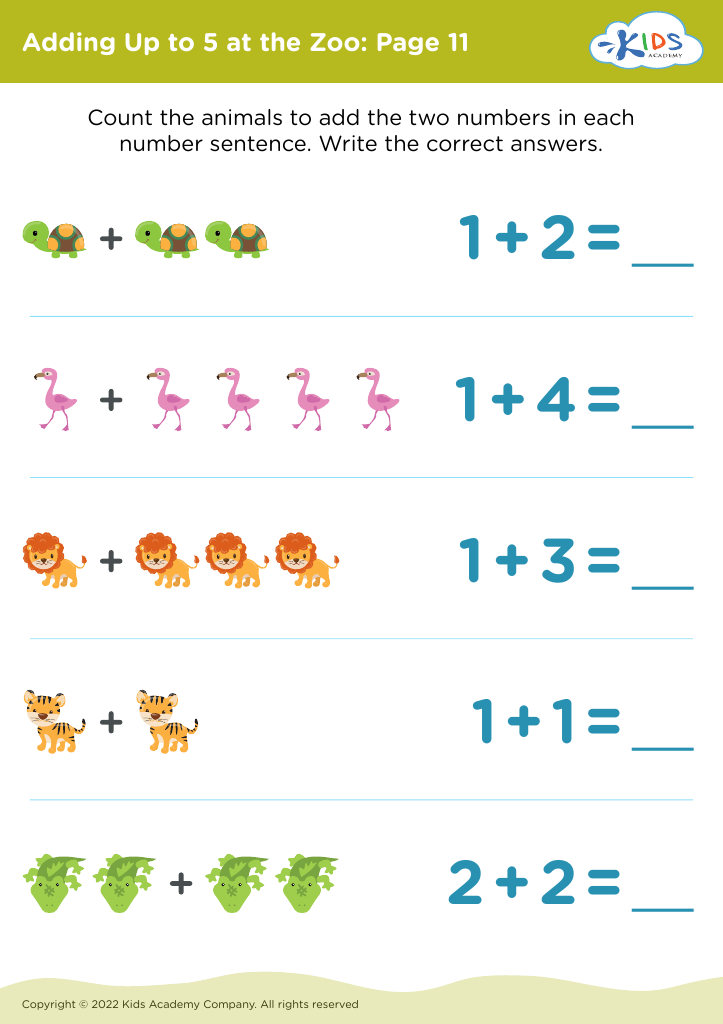Enhances counting skills Math Worksheets for Ages 4-7
6 filtered results
-
From - To
Boost your child's counting skills with our expertly crafted Math Worksheets for Ages 4-7. Designed to complement early learning, these engaging worksheets cover essential counting concepts through fun, interactive activities. Children will enjoy colorful illustrations and varied exercises that challenge their numerical understanding, from simple counting to more complex addition and subtraction. Our worksheets not only promote mathematical proficiency but also build confidence as young learners grasp foundational math skills. Ideal for homeschooling or supplemental practice, these resources ensure a strong arithmetic foundation. Visit us at [link] and unlock your child's full potential in counting and number recognition today!


Flower Math: Measuring Height Worksheet
Enhancing counting skills in children aged 4-7 is crucial for several reasons, impacting both their academic growth and everyday life experiences. At this formative age, foundational math skills set the stage for future learning. Counting is more than simply reciting numbers; it involves understanding quantity, order, and patterns which are essential components of mathematical reasoning.
Mastering counting helps children build numeracy, which is vital for problem-solving and logical thinking. These skills extend beyond math classes into other academic areas, fostering overall cognitive development. Early proficiency in counting also boosts confidence, creating a positive attitude towards learning and reducing math anxiety.
For parents and teachers, focusing on these skills means preparing children for the structured learning they'll encounter in later grades. Practical applications, such as counting money, telling time, or following a recipe, illustrate the relevance of counting in everyday activities, helping children to see math as a useful tool rather than an abstract concept.
Furthermore, early interventions in math skills can identify and address potential learning difficulties, ensuring all children have a strong start. Therefore, by investing time and resources in developing counting skills, parents and teachers lay a crucial foundation for lifelong learning and success.
 Assign to My Students
Assign to My Students



























